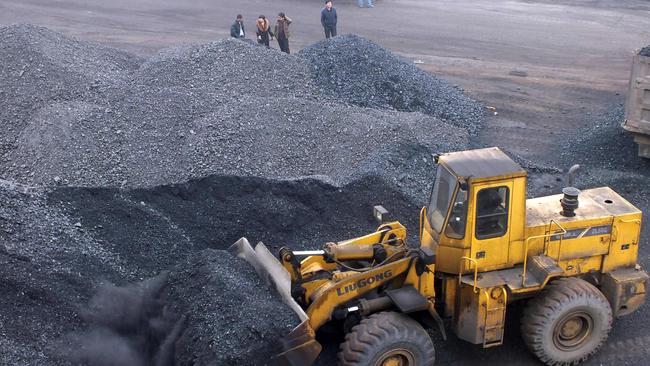Australian climate litigation to be based on human rights, duty of care claims, experts say
Climate change litigation will increasingly be based on human rights and duty of care claims, experts say.

Business
Don't miss out on the headlines from Business. Followed categories will be added to My News.
Australian businesses lagging on climate change are at risk of being hit with costly legal action, amid rising threats of potential claims made on the basis of duty of care obligations and human rights, top legal experts have warned.
Ilona Millar, partner at Baker McKenzie’s environmental markets practice, told a roundtable on Environmental, Social and Governance Litigation hosted by UBS on Tuesday that Australian climate litigation was shifting to feature more “novel’ claims.
“Historically what we’ve seen with these cases is that they have been brought in the planning arena, focusing on the actions to prevent large scale greenhouse gas emitting developments using merit or administrative review of planning decisions,” she said.
“But what we see now is a real move towards different types of actions using different types of court framework mechanisms, including using human rights actions, actions in negligence and actions in public nuisance.
“I think in terms of being prepared for climate litigation risk, I think it‘s important for companies and investors to understand how these particular types of claims are changing, and the move towards more novel approaches in basis for claims.”
Some countries have already moved on duty of care and human-rights based challenges to corporate polluters, with a Dutch court earlier this year ordering oil giant Shell to slash its emissions by 2030, as its status as a major emitter fuelling climate change threatened the rights of some individuals.
Ms Millar said it was unlikely there would be a comparable case in Australia, but said there would be further legal examination of the crossover of duty of care and the environment, following the decision of Sharma V Minister earlier this year.
In that case, Federal Court Justice Bromberg found that Australia’s environment Minister had a duty to take into account harm to children from carbon emissions when approving new coal mines.
Although noting the “narrow” application of that decision, Ms Millar said it highlighted a shift in litigation strategy that would eventually impact corporations.
“What we’ve seen as a growing trend is where actions succeed against the state, you will then start seeing similar cases brought against companies,” she said.
“I think what it does do is highlight the trend to look at what are the impacts of certain decisions on the human rights of different classes and persons as a result of actions that impact climate change.”

A further climate-based legal risk for companies comes from the disclosure of climate change risks and environmental initiatives by corporates, Ms Millar said.
“Those disclosures will be subject to very close scrutiny, and this raises risks of challenges for those closures potentially being misleading and deceptive,” she said.
Addressing the “social” dimension of ESG, Baker McKenzie partner Sean Selleck said companies releasing statements under Australia’s new modern slavery reporting regime face similar legal risks if they weren’t careful.
“What we’re seeing in the first round of reporting under the Australian act is most companies reporting haven’t done a particularly good job reporting about risk at the tier one supplier level, let alone, digging below that to assess risk, and address risk with the suppliers to the tier one suppliers and so on,” he said.
“I think the companies that are making these statements are really exposing themselves to risks because they haven’t undertaken serious analysis of the risks in their supply chain.”
Baker McKenzie partner Georgie Farrant said companies could avoid governance-based litigation by boosting their risk management, particularly in relation to corruption and bribery issues.
“There’s no doubt that the types of litigation in this space can definitely have a significant impact on the value of the company, not just because it impacts their reputation but also because some companies that potentially win their business through these issues such as bribery … simply aren’t viable once those elements are taken away,” she said.
Originally published as Australian climate litigation to be based on human rights, duty of care claims, experts say



